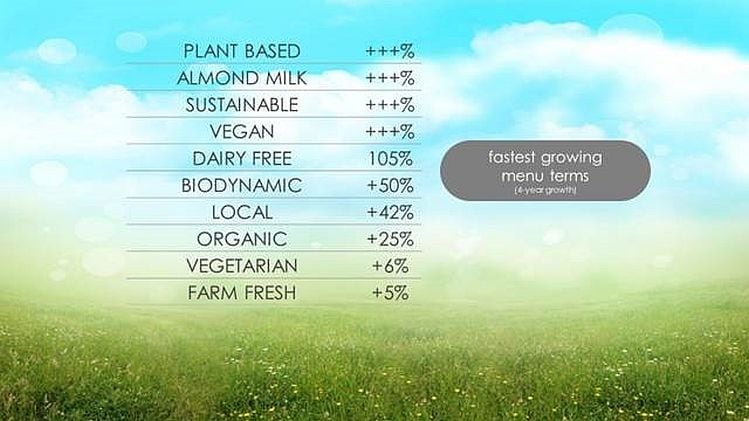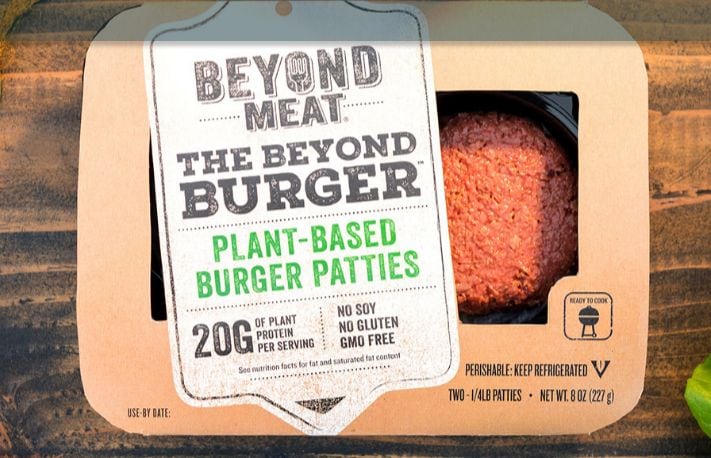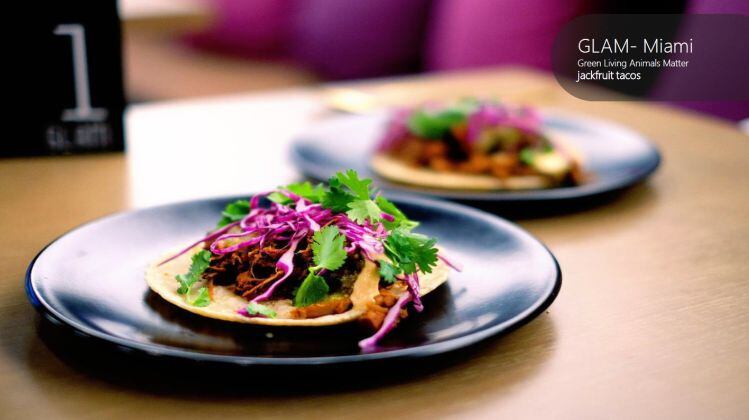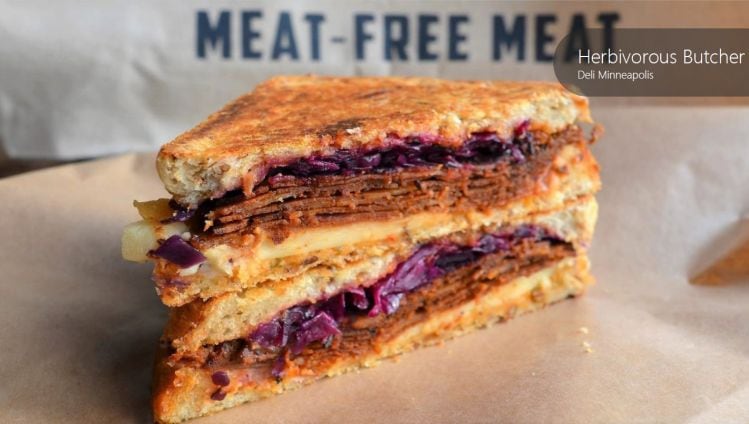Speaking at the Plant Based Food Innovation Summit at Mattson’s new HQ in Foster City, CA on Tuesday, Colleen McClellan, director, client solutions, at foodservice market researcher Datassential, said some operators are actively using the terms ‘plant-based’ or ‘plant-forward’ on menus.
Others prefer not to dwell on a dish’s animal-free credentials but focus instead on calling out specific ingredients (maitake, chia, fava bean, spirulina), buzzwords (‘super food bowl,’ ‘super salad’) or cuisine types (Ethiopian, Indian) where the dish in question just happens to be vegan or vegetarian, she said.
“Vegan foods aren’t just for vegans anymore, but plant-based must be crave-worthy,” added McClellan, showing an uninspiring picture of a generic garden-type-burger on a restaurant menu and comparing it with pictures of the new plant-based Beyond Burger and the Impossible Burger, plus Sonic’s blended burger (made with a blend of beef and mushrooms): thick, juicy, meaty-looking burgers sitting next to their 100% meat-based counterparts.
“55% of consumers say they love steak, only 5% love tofu.”
And while consumer survey data by Datassential and Mattson suggests that consumers believe plant-based is healthier, savvy restaurant operators featuring the latest generation of meat-free burgers (which are targeting meat eaters and vegans/vegetarians alike) are not shouting about health – or saving the planet - on menus, she said.
“It’s about deliciousness. The words vegan and vegetarian are the kiss of death for some consumers."
70% of consumers are trying to increase their fruit and veggie intake
That said, while many of the column inches devoted to plant-based foods tend to focus on meat, egg and dairy analogs, to many consumers, plant-based is mainly about eating more fruits and veggies, she said, noting that around 70% of consumers in surveys will typically say they are trying to consume more.
“70% are actively trying to increase fruit and veggies; they just can’t figure out how to do it.”
Some chefs are also treating veggies like meat, offering cauliflower ‘steaks’ and ‘braised’ mushrooms or adopting terms used in butchery to talk about ‘meaty’ plants such as jackfruit, she added.
Datassential research also shows that purchase intent for some plant-based center-plate items increases when restaurateurs adopt more ‘meaty’ terminology on mock menus, added Mattson president and chief innovation officer Barb Stuckey.
"The more meat and chicken and fish vernacular you use the higher the scores, things like Applewood Smoked Porto’house with chard, Hot “Chicken” Fried Steak with avocado puree, Tomato “Tuna” with pickled ginger pears... it's about anchoring people with things that they love."
Further reading: ‘Plant-based’ plays way better than ‘vegan’ with most consumers, says Mattson

Plants to watch?
- Seaweed: Know it 77%, tried it 34%, love or like it 19%
- Maitake (mushroom): Know it 42%, tried it 23%, love or like it 14%
- Black garlic (aged garlic): Know it 36%, tried it 16%, love or like it 9%
- Persimmon (fruit): Know it 56%, tried it 27%, love or like it 14%
- Ube (purple yam): Know it 13%, tried it 5%, love or like it 3%
- Yuzu (citrus fruit): Know it 15%, tried it 6%, love or like it 3%
- Acai (berry): Know it 59%, tried it 33%, love or like it 23%
Source: Datassential syndicated FLAVOR database based on quarterly nationwide consumer surveys.
Menu growth, past four years
- Chia seeds +396%
- Flax seeds +109%
- Turmeric +176%
- Bee pollen +64%
- Kimchi +92%
- Spirulina +40%
Source: Datassential

“Late last year, we commissioned a third-party company to conduct a survey on who is ordering the Impossible Burger. The overwhelming majority of people who buy the burger (about 70%) are regular meat eaters." Read more HERE.
David Lee, chief financial officer, Impossible Foods

“When we think about competition, it’s meat. Our goal has never been to be the top selling veggie burger company, although we obviously want vegans and vegetarians to enjoy our products. But we’ve never aspired to be the leader of 5% of the market, we’re going after the other 95%.” Read more HERE.
Seth Goldman, executive chairman, Beyond Meat





